VODKA POLISH STYLE 101- THE ULTIMATE GUIDE
*Disclaimer*
It is very important to keep in mind each and every one of the ‘drink aware’ principles while reading this text. It has never been intended to promote alcohol consumption neither amongst youth nor any other age group. Certain opinions are used as grotesque and pastish to mock the stereotypes and myths that have build around alcohol consumption in Poland, and Eastern Europe as a whole. Neither this text is meant to insult anyone, nor to put any person, nation or culture in derogatory light.
***********
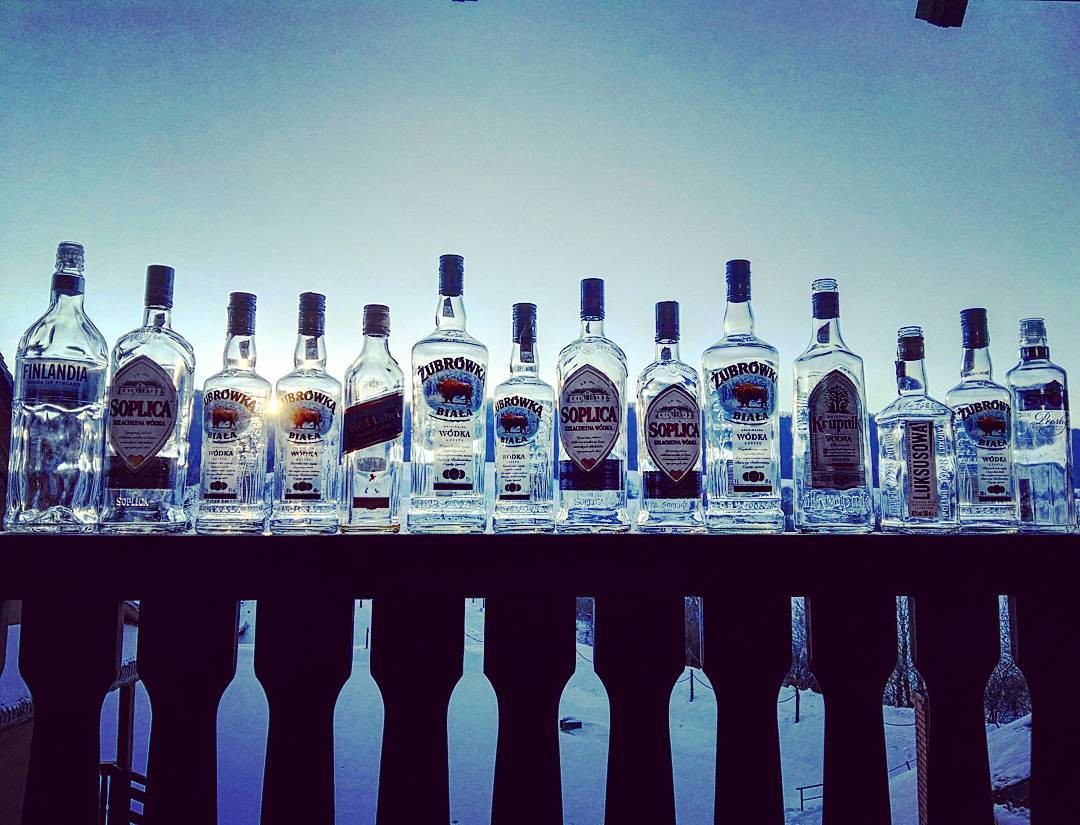
Short glasses.
Transparent cold liquid in a frosted bottle.
Somehow thicker after a whole night in a freezer.
You knew this night would come. The moment you pressed ‘apply’ when you chose your Erasmus destination. You knew the spirit of the country you were coming to.
Did it surprise you?
No.
Maybe.
Somehow.
The thing is you weren’t expecting the actual scale of drinking vodka. The style. The customs. It’s like seeing bicycles in Amsterdam. In theory cycling is not any unusual. Until you come to the Netherlands.
Bear it in mind when coming to Poland.
Vodka is nothing unusual until you get here.
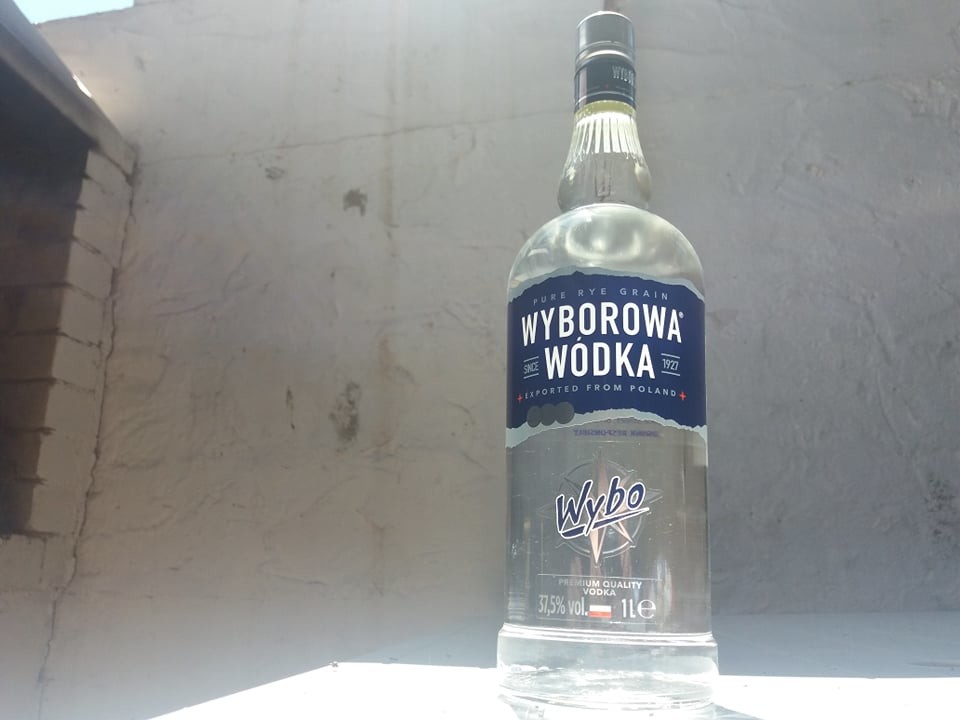
YOU DON’T SAY (it correctly)
First of all, learn how to pronounce it:
It should be spelled wódka and pronounced ‘voodka’. Morphologically it can be understood as ‘little water’. Listen how affectionate it sounds.
Never say ‘Gray Goose’.
It’s French. It has nothing to do with wódka, nor with birds. Bin it. You don’t need it in your life. Ever.
KNOW THE HISTORY
As any national treasure, vodka has got history behind it. Well, there are two ways of looking at it. The more sinister side of our bottled friend is its everlong criminal record that contains several murders, poverty, losing independence of a whole state, domestic abuse… well this for some other occasion.
Today I want to show you the fascinating story behind the distillation, sales and consumption of this spirit.
According to many historians and archaeologists the very first recipe for a moonshine was found in Poland, and technically it is older than the country. Which honestly exemplifies the national hunger for strong stimuli.
Ok, we are ready to admit that the first actual recipe for vodka was created in Russia (but probably based on Polish ideas for a moonshine). It was them, who first came up with a concept of using crops to distill a perfectly transparent and almost clear alcohol. We accept it, simply because Russians are the only nation we consider equal when it comes to this drink. In our love-hate relationship, every now and then we think of each other as Sherbet Pals.
Well, it’s not an entirely platonic drinking friendship, it serves our Polish conscience. In our heads we’re not this bad, as long Russians are around. After all, it was them who in the 10th century risked a countrywide famine to create a better liquor. Not us.
Nevertheless, it doesn’t really bother us to be proud wódka drinkers. You can be sure that at some point of your stay in Poland someone, probably rather tipsy, will tell you the story about the French proverb ivre comme un polonais. Which supposedly meant to describe a person who likes to binge drink vodka and yet still be able to think clearly and act sensibly. The proverb origins in Napoleon’s times and the battle of Somosierra, where the allegedly drunk Polish troops still managed to lead the victorious infantry’s charge, and did the job nobody else was willing to do This impressed the petit general to the point of exclaiming that he wished all his soldiers had been able to drink the way the Poles could.
The history comes handy also when explaining a bizarre gesture Poles use when they refer to drinking. Very often you’ll see somebody hitting the back of their neck with their hand while talking about any alcohol. It is a 250-years-old gesture. Back then, every Russian soldier was entitled to a free drink in any Polish inn, but to prove they were indeed army men they had to show the tattoo hidden behind collars of their shirts. The scene was so typical, that after a while it became a synonym of drinking.
There is another centerpiece of the history of vodka consumption in Poland. The communist era and the People’s Republic of Poland (PRL). A rather sad time of poverty and decline hidden behind the propaganda posters and a sentiment of those who deem freedom too difficult. The 44 years of life in the shadow of the Iron Curtain, when the only assortiment always available in grocery shops were vinegar and vodka. The latter was perfidiously used by the dictatorship government to dull the national longing for freedom.*
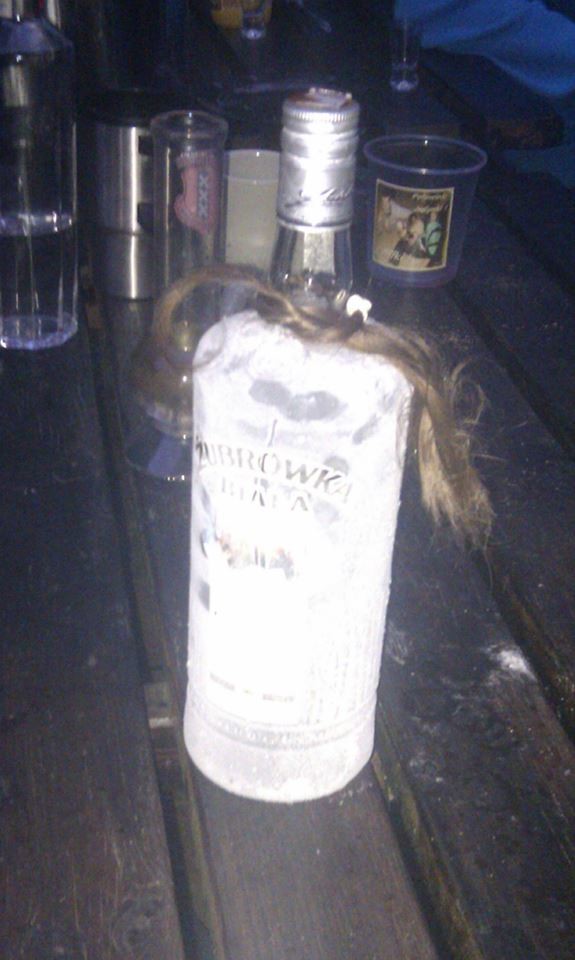
CULTURE
Hey!
It doesn’t mean that wódka is a country’s favourite depressant. Each time you sit at our table you will discover it is quite the opposite!
There is joy, there is laughter, there is a real bond between those who gathered together. After all, alcohol lets a bit of truth about you slip from your mouth. (Watch out however, truth isn’t the only thing that can slip through your mouth, especially when binge drinking!). Maybe this is why in my home country some say “how well do you know them? Have you drunk together?” to stress that we know nothing for sure about the others, until we actually meet them.
Wódka must be chilled. Cold. Freezing the best. As thick as possible. That’s why a true party host should keep it in a freezer. Some wrap it in a wet napkin to make it even colder.
Wódka can’t be opened just like a coke. It’s a ritual, and you have to establish your own!
Some kiss the cap, some hit the bottle bottom with their elbow, some smack the bottleneck, all this in various combinations and always in the same way. Opening the bottle is a celebration, and it has to be preceded by a trademark salute.
After saluting, the toast! Look them in the eyes while hitting the glass. Unlike in Western Europe, where you used to hit the cups to mix their content (and thus mix the potential poison), the wódka toast is the ultimate sign of friendship. The delicate touch of two glasses is like saying ‘I am willing to waste my liver to have a pleasure of drinking with you’. That’s why the eye-contact is essential!
Now the first shot. Undoubtedly, for some of your taste buds it will be lethal. Stay strong!
The first should be taken clean - this is what Polish aunts say. No mixers. No coke, no juice after. The brute force of no less than 40% voltage hits you and you have two choices: stay up and gain some lifelong respect, or go down in disgrace. Choose wisely.
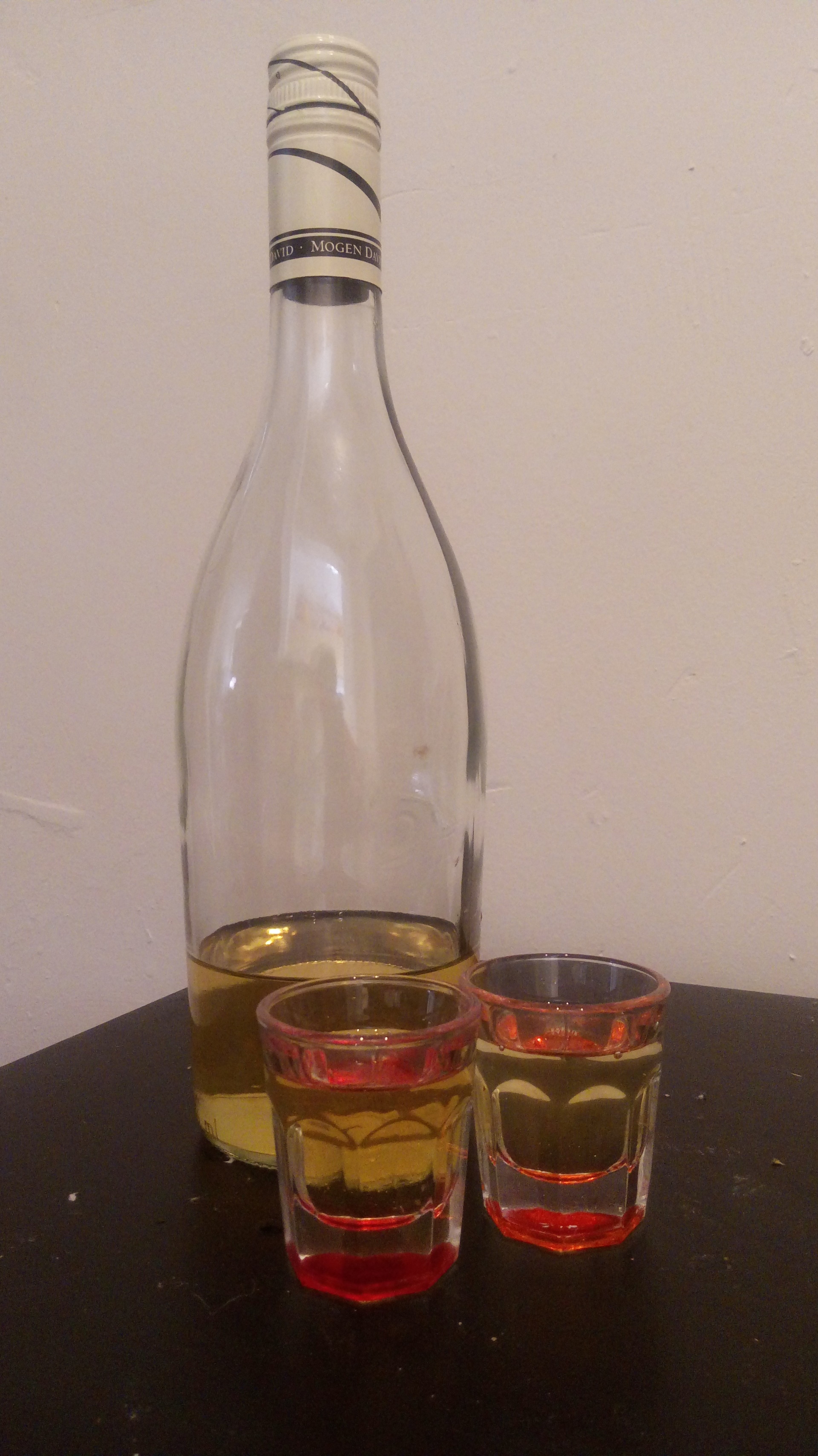
THE TASTE
Wódka must make you do the face. If not, if you actually like the taste, well, then you have a problem.
This is the essence of what it should taste like.
Horrible, disgusting, sickening, awful.
As long as you don’t like it, you’re fine. It is not made for pleasure, but rather to be a noble obligation of any grown up to respect their peers by having a drink with them. In an ‘ain’t no want to, but have to’ spirit.**
Everybody knows the taste of vodka, and only few can classify it as ‘pleasant’. Instead, the quality of vodka is believed to be measured by your next day feeling and the taste you have in your mouth the moment you wake up.
Nevertheless Poland has got something to surprise you.
The mix of a nation’s love to high-voltage spirits and a pinch of extravaganza.
The flavoured wódka.
Some love it, some despise it.
I am sure, some of them will be jaw-dropping.
Pomegranate, watermelon, gingerbread, coffee, apples, cherries, coconut, lemons, black pepper…
Oh boy…
Do you think you’ll manage to try them all?
WÓDKA POLISH STYLE
There is a different way we drink than the ones you now from university pre-drinks or botellones. In Poland, very often you’ll end up drinking vodka not to go out, but to spend an entire night sitting around the table, and talking your head off. You'll chatter literally about anything, good old days, good new days, good boys, bad boys, new business, old friendships. All the words that have been building up below your scalp will suddenly find a way out.
This is the true spirit created by the spirits.
And it is something that will stay with you for long.
The longing to get together, sit down, grab glasses and exchange stories, theories and thoughts throughout the night, up to the dawn.
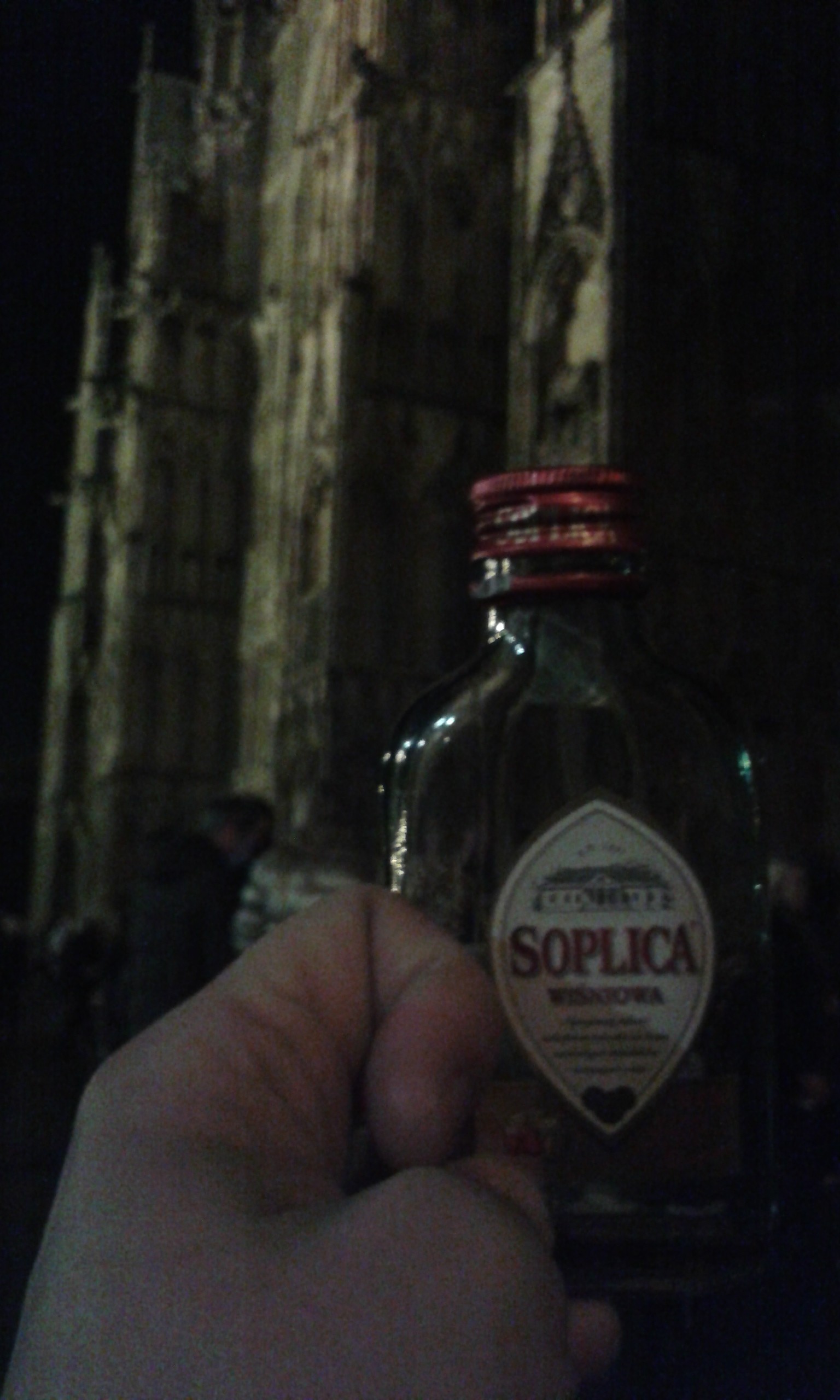
Some more notes for those interested:
With my friend’s we have an inside joke that you can measure one’s age simply by the type of vodka they buy
-
teenagers would go for the cheapest, chemical type;
-
students would waste their livers on slightly more expensive, since even the smell of cheap wódka makes them sick;
-
grown ups will have one type of a mid-range vodka that doesn’t provoke the repulsive reaction of their bodies and will be able to afford the expensive bottles for a special occasion.
When it comes to flavoured vodka there are two worth recommending
-
Lubelska antonówka- a sour apple taste,
-
Toruńska piernikowa- a gingerbread flavoured masterpiece, perfect with a fresh apple juice mixer.
-
Soplica orzechowa- a walnut flavoured vodka.
-
Soplica wiśniowa- a cherry flavoured vodka.
The French proverb ‘ivre comme un polonais’ or 'soûl comme un polonais', has got a rather insulting meaning, and probably was never meant to be taken as a compliment, but it didn’t discourage us from seeing the world our way. On the side note, I know that for most fighting alongside Napoleon is not exactly the most dignified deed to be proud of. Here wódka comes handy again, as mentioned, very often our troops might have been drunk while fighting, which should be considered as an unconscious attempt of weakening the enemy from inside. A drinking hidden cell.
*The song mentioned in the text was performed by a legendary band KULT and it is called “wódka”. You can listen to it here https://www.youtube.com/watch?v=wU2Y1k26YmU and here you can read the text http://www.tekstowo.pl/piosenka,kult,wodka.html. Sadly the translation isn't flawless, but you can get the general message from it.
**this is my free translation of the famous Lech Wałęsa’s quote ‘nie chcę, ale muszę’. Hope it was a good pun.
Please excuse me the quality of the photos, but to be honest they were taken in those moments when my quality wasn't the best either (if you know what I mean).
Photo gallery
Want to have your own Erasmus blog?
If you are experiencing living abroad, you're an avid traveller or want to promote the city where you live... create your own blog and share your adventures!
I want to create my Erasmus blog! →











Comments (0 comments)